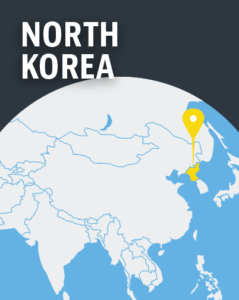North Koreans were “betrayed” by the failure of US President Donald Trump to include human rights provisions in his agreement with the country’s leader, Kim Jong-un, following their historic meeting in Singapore, according to Human Rights Watch’s Asia Director, Phil Robertson.
“The North Korean people have suffered for so long,” he told the BBC World Service, “and it looks like they’ll have to suffer for a little longer.”
But after the meeting Trump said the many North Koreans currently being held in forced-labour camps were “one of the great winners today”.
Responding to a question from ABC News’s Jon Karl about whether North Korea’s oppression of its people was worse than any other regime on earth, Trump said: “It’s a rough situation over there; there’s no question about it, and we did discuss it today pretty strongly.
“I mean, knowing what the main purpose of what we were doing is – de-nuking – but we did discuss it in pretty good length.
“We’ll be doing something on it. It’s rough; it’s rough in a lot of places, by the way, not just there, but it’s rough and we will continue that, and I think ultimately we will agree to something, but it was discussed at length. Outside of the nuclear situation, [it was] one of the primary topics.”
‘Very deep resentment’
John Choi
“Hopefully denuclearisation will lead to more money available to feed the everyday citizens of North Korea and provide them with a better life. President Trump said that the human rights issues are a continuing process. I am glad it is now on the agenda. But Kim Jong-un has to be committed to it too. Kim Jong-un has not yet referred to the prison camps or religious freedom. This is an ongoing process and I will continue to advocate and pray for it,” he told the Christian religious freedom charity Open Doors International.
But Yong Sook, whose husband died in a North Korean prison and who now lives in South Korea, told Open Doors she watched the meeting between the US president and North Korea’s Kim Jong-un “with very deep resentment”.
“How many innocent people have died because of the development of the nuclear weapons they are talking about now?” she said. “So far, none of the leaders of North Korea have really taken care of their people. They let them starve to death. Why? Because they don’t want to give up those nuclear weapons. They need them to survive and survival is Kim Jong-un’s desire. Now he wants to give up those weapons? Maybe, but again, he will only give them up if his survival is guaranteed.
“Kim Jong-un should confess what he and his regime have done. He should open the doors of the political camps and kneel down to apologise to those who have suffered due to its regime. The lives of North Korean citizens are just as important as Kim Jong-un’s life.”
Christian roots
Historically, North Korea has a rich Christian heritage, but after Japan’s formal rule from 1910-1945, followed by the Korean War (1950-53), any form of public Christian worship has been banned, and surviving Christians have had to take their beliefs “underground”.
Today North Korea is atheistic and totalitarian, and since 2002 it has been the most dangerous place to be a Christian, according to Open Doors.
If you “merged the Soviet Union under Stalin with an ancient Chinese Empire, mixed in The Truman Show and then made the whole thing Holocaust-esque, you have modern-day North Korea”, Tim Urban wrote in the Huffington Post after visiting the country in 2017.
“It’s a dictatorship of the most extreme kind, a cult of personality beyond anything Stalin or Mao could have imagined; a country as closed off to the world and as secretive as they come, keeping both the outside world and its own people completely in the dark about one another — a true hermit kingdom.”
‘70,000 Christians detained’
There are approximately 300,000 Christians in the country, with almost a quarter of them (70,000) being held in prisons and labour camps, where they face “unimaginable torture, inhumane and degrading treatment purely because of their faith”, according to Zoe Smith, Head of Advocacy at Open Doors UK & Ireland.
Leading up to the summit, North Korea released three American citizens who had been put in labour camps for “anti-state activities”. One of the detainees, Kim Hak Song, recently said his captors had told him he was imprisoned because of his “hostile act” of prayer.
“The systematic persecution of Christians is just one of many heinous human rights violations perpetrated by the North Korean regime,” Smith said. “If true change is to come to that country – and we hope it will – any further negotiations must confront the desperate human rights situation.”
Meanwhile North Korea appears to be upgrading its longstanding neighbourhood-watch system, or ‘inminban’, whereby every North Korean is called upon to report on any criminal activity or political disobedience that they see. According to the South Korea-based news service Daily NK, inminban leaders now receive special rations in return, while in some places, like the capital Pyongyang, they have the authority to expel families who have engaged in illegal activities.
According to the US State Department’s International Religious Freedom Report for 2017, there were more than 1,300 religious-freedom violations in North Korea last year, while it is estimated that its camps hold more than 120,000 political prisoners.
In December three jurists called on the International Criminal Court to establish a special tribunal to prosecute North Korea’s leader and his top officials for committing “crimes against humanity”.
(*) Name changed for security reasons